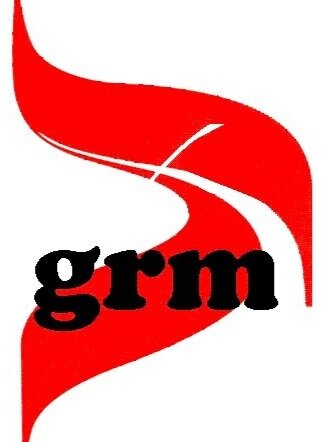NATIONAL PROBLEM GAMBLING AWARENESS MONTH (Post 139)
WEDNESDAY, MARCH 24
Post 139
AWARENESS!!!
“Awareness is awareness is awareness!
The more public information appears within a community
about problem gambling and recovery,
the greater the need for help develops.
The more help developed and offered, the greater the awareness grows.
MORE HELP, MORE HOPE!!”
During March, I served as presenter within a panel discussion at the 24th Annual Educational and Awareness Conference of the Kentucky Council on Problem Gambling. The topic was broad: A Comprehensive Concept for Understanding, Preventing and Treating Addictive Behaviors. My part of the program was to speak on the role of spirituality and faith in recovery from addictions. Of course, I tailored the materials to address faith-based outreach support to those impacted by disordered gambling. Definitely, faith communities can do this! I entitled my comments A Hope List, as the format actually was composed of lists: DO LISTS that I HOPE churches, mosques, synagogues, and others will DO.
Rev. Susan Gregg-Schroeder, Coordinator of Mental Health Ministries (www.mentalhealthministries.net ) reminds us that:
A majority of individuals with a mental health issue go first to a spiritual leader for help
[however] Clergy often lack the training to provide appropriate support and referral information
Therefore, can you imagine if every house of worship consistently and purposefully did three or more of the items on the DO LIST, what the impact would be for those affected by addiction?
From my experiences in parish pastoring, I can share with you that the two personal issues of FORGIVENESS and GRIEF top the list of individual challenges that impact an individual’s faith.
And naturally, these two issues pop up often whenever addiction plays a key role in personal relationships. So how can we extend HOPE in situations where there doesn’t seem to be any hope … especially when grief and forgiveness rule the roost?
The following is an abbreviated list of possibilities for communities of all faiths to try and hopefully build into their ministry of outreach.
CLERGY’S ROLE as one who builds hope within the community of faith
1. Utilize sermons, study groups and counseling sessions to help congregants recognize that disordered gambling is treatable.
2. Offer materials on how to access treatment, recovery and prevention services for individuals and family members including Gamblers Anonymous, Gam-Anon, On-Line Gamers Anonymous, Computer Gaming Addicts Anonymous (CGAA), Alcoholic Anonymous, Al-Anon. Alateen, Narcotics Anonymous, Narc-Anon, etc.
3. Collaborate with area gambling counselors/treatment facilities. Mutual referral may occur! Invite a certified gambling counselor to speak to your congregation.
4. Have someone in long-term recovery and a recovering family member to speak to the congregation about their personal experience.
5. Host a gambling recovery workshop with speakers from GA and Gam-Anon
6. Support a recovery-friendly outreach within your congregation.
7. Let members of the faith community know they can come to you for support and assistance if they have concerns about their own or someone else’s gambling problems.
8. Provide information about area GA, Gam-Anon, AA, Al-Anon, and Alateen, etc. meetings on a bulletin board and in your newsletters and worship bulletins.
9. Focus on the needs of family members of disordered gamblers during March, Problem Gambling Awareness Month. Put up posters, say special prayers. Go to https://www.ncpgambling.org for information.
10. Become an active member of your local Community Anti-Drug Coalition. Remember, there are co-occurring disorders and you may become the “gambling representative” within the group!
RECOVERY WITHIN THE LOCAL FAITH COMMUNITY
Allow 12-Step programs to use the facility for meetings and special events. Often times, recovery groups have celebrations of sobriety, marking anniversaries of abstinence. Opening doors to such occasions indicates WELCOME: we celebrate with you!
Include a Voice of/for Recovery in the local administrative council/board.
Create a Recovery Department (similar administrative level as the Education Department).
A Recovery Congregation: this is intentional. The congregation and staff are recovering from addictions/debilitating disorders. The ministry centers on faith and recovery.
Specific recovery groups /events : examples – Prayer Group(s), Mission Trips, Weekend Retreats, Study Group(s), Faith-based 12 Step Group(s)
April’s GRM Blog Post will continue this HOPE LIST. My prayer is that these ideas will spark curiosity and motivation within all persons of faith to reach out in new ways to those who are seeking help and hope for problem gambling. You will be blessed as you offer blessings to others!
Blessings,
Rev. Janet Jacobs, CCGSO
Founding Director
Gambling Recovery Ministries
855-926-0761
For more information on the IGCCB Clergy/Lay Minister Certification visit:
From IGCCB’s Resources for Coping with COVID 19:
https://personcenteredtech.com/tmh/clients (Online therapy preparation for clients)
https://gambling.easywebinar.live/replay (Jody Bechtold telehealth webinar)
https://youtu.be/dYUEjIFtT8E (Jody Bechtold telehealth webinar)
For more information on gambling disorder and recovery issues, go to:
www.indianaproblemgambling.org
